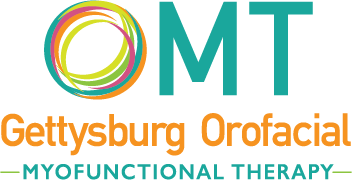The Importance of Oral Cancer Screenings
While not always top of mind, routine oral cancer screenings are essential for identifying potential signs of oral cancer before it spreads and improving survival rates and treatment outcomes.
Below, we’ll help you understand oral cancer risk factors, warning signs, and how regular checkups with your dentist are a crucial part of maintaining your health.
Understanding Oral Cancer Risk Factors
Oral cancer refers to cancer that develops in the mouth, lips, throat, or surrounding areas. While it can affect anyone, certain risk factors may increase your chances of developing the disease.
1. Tobacco Use. Smoking in all its forms — cigarettes, vaping, nicotine pouches, etc.— increases your risk of oral cancer. Additionally, the longer you smoke, the greater your risk.
2. Heavy Alcohol Consumption. Drinking in excess over extended periods can increase risk. Heavy drinkers have higher risks compared to those who don’t drink as much or as often.
3. Human Papillomavirus (HPV) Infection. Infection with some forms of HPV can cause some forms of cancer, such as oral and cervical.
4. Sun Exposure. Those who enjoy the outdoors should be aware of the harmful effects of UV rays or sun exposure, which can cause lip cancer.
5. Age. Oral cancer is more likely in older adults; however, it can occur in younger individuals as well.
6. Nutrition. It can affect your smile. Studies show that diets lacking in fruits and vegetables are associated with risks of cancer.
7. Sex. Men are twice as likely to develop oral cancer than women.
Some risk factors related to lifestyle, like smoking, are changeable. At the same time, other factors, such as age and sex, are not.
Notably, 25% of people with the disease have no known risk factors. Individuals at higher risk should be even more vigilant and have more frequent screenings.
Recognizing Warning Signs
For many, the first stages of oral cancer are asymptomatic, which is why regular oral cancer screenings are crucial. However, recognizing the warning signs can help lead to early detection.
• Mouth Sores or Ulcers. Keep an eye out for persistent sores that do not heal within two weeks.
• Lumps or Thickening in the Mouth or Neck. These include a noticeable change in texture or lumps inside the mouth, on the gums, or in the neck area.
• Pain or Difficulty Swallowing. Difficulty swallowing or a sore throat that doesn’t improve could indicate a problem.
• Changes in Speech. This includes hoarseness or a change in the way your voice sounds.
• Unexplained Bleeding. Be attentive to any bleeding inside your mouth and gums without an apparent cause.
• White or Reddish Patches Inside the Mouth. These patches may appear on the gums, tongue, or mouth.
If you notice any of these symptoms, schedule an oral cancer screening with your dentist.
Your Dentist Is Here to Help!
Knowing the warning signs and risk factors can go a long way toward detecting oral cancer in its early stages, but understanding your risks doesn’t have to be a solo effort!
The dentists at Gettysburg Dental Associates can perform oral cancer screenings and help you better understand your risks. Learn more about the treatments we provide and schedule an appointment with us today.






